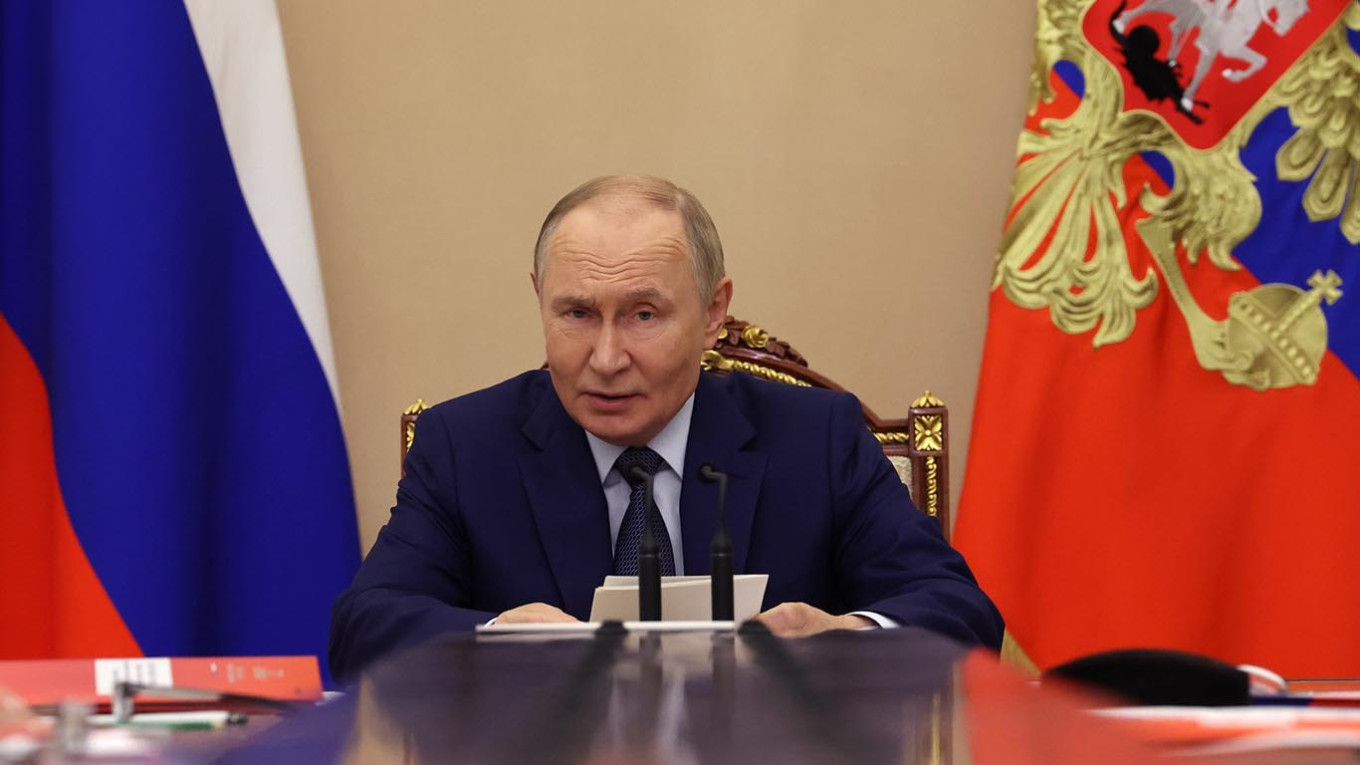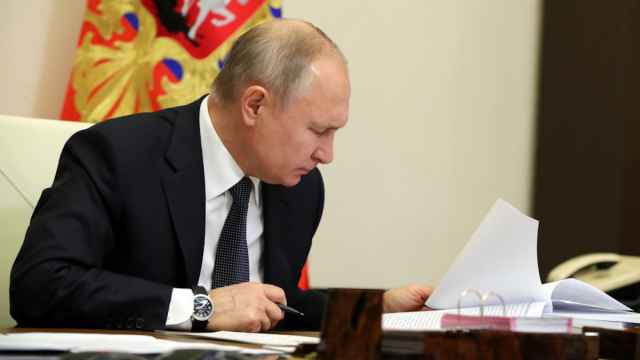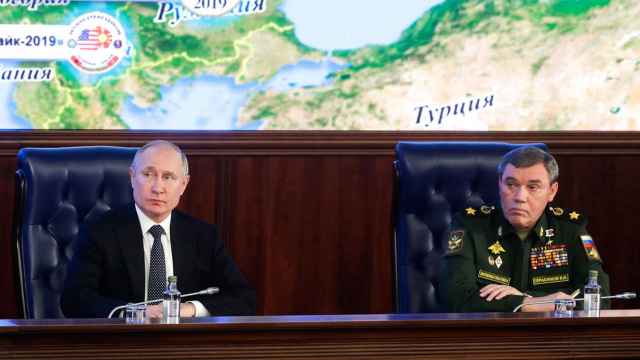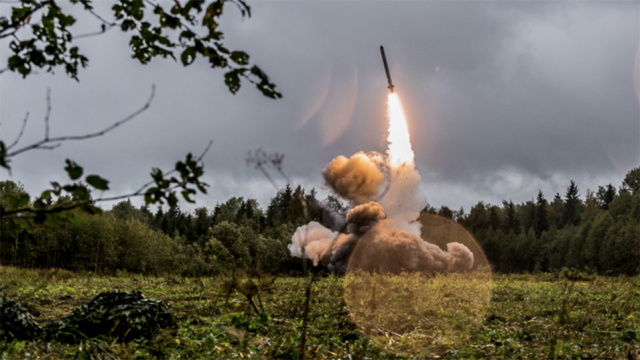President Vladimir Putin said Monday that Russia is ready to continue observing the central limits of the New START nuclear arms reduction treaty with the United States for one more year after it expires in 2026.
New START, signed in Prague in 2010 by former U.S. President Barack Obama and his Russian counterpart at the time, Dmitri Medvedev, restricts each side to 1,550 deployed warheads and 800 launchers and bombers. It also provides for a series of mutual onsite inspections.
In early 2023, Putin accused NATO of seeking to attack Russia’s nuclear facilities and declared that Moscow would suspend its role in the pact, which is due to expire in February 2026. Officials later clarified that Russia would still abide by the numerical limits but would discontinue other parts of the agreement.
At a meeting of Russia’s Security Council on Monday, Putin said it would be “a mistake” to “completely abandon the treaty’s legacy.”
“To avoid provoking a further strategic arms race and to maintain an acceptable level of predictability and restraint, we believe it is reasonable at this turbulent stage to try to preserve the status quo established under New START,” the Kremlin leader said.
Russia, he added, is prepared to continue observing the treaty’s numerical limits for one year after it expires and would later decide whether to extend what he called “voluntary self-limitations.”
There was no immediate response to the Russian president’s offer from U.S. officials. Trump said in July that he wanted to extend New START, adding that White House officials were “starting work on that.”
Putin on Monday also warned that “the situation in the area of strategic stability” was deteriorating, blaming what he described as “a whole range of negative factors that are aggravating existing risks of a strategic nature and generating new ones.”
“Russia is ready to respond to any new threat not just with words, but with force,” he said.
Those remarks came ahead of an emergency UN Security Council meeting that Estonia requested after it said last week that Russian fighter jets violated its airspace. The Kremlin denied the accusation.
A Message from The Moscow Times:
Dear readers,
We are facing unprecedented challenges. Russia's Prosecutor General's Office has designated The Moscow Times as an "undesirable" organization, criminalizing our work and putting our staff at risk of prosecution. This follows our earlier unjust labeling as a "foreign agent."
These actions are direct attempts to silence independent journalism in Russia. The authorities claim our work "discredits the decisions of the Russian leadership." We see things differently: we strive to provide accurate, unbiased reporting on Russia.
We, the journalists of The Moscow Times, refuse to be silenced. But to continue our work, we need your help.
Your support, no matter how small, makes a world of difference. If you can, please support us monthly starting from just $2. It's quick to set up, and every contribution makes a significant impact.
By supporting The Moscow Times, you're defending open, independent journalism in the face of repression. Thank you for standing with us.
Remind me later.






